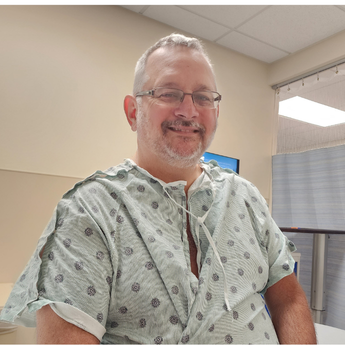By continuing to use our site, you consent to the processing of cookies, user data (location information, type and version of the OS, the type and version of the browser, the type of device and the resolution of its screen, the source of where the user came from, from which site or for what advertisement, language OS and Browser, which pages are opened and to which buttons the user presses, ip-address) for the purpose of site functioning, retargeting and statistical surveys and reviews. If you do not want your data to be processed, please leave the site.
The Voice of People With Breast Cancer
your path to accessing financial resources
FinancialNavigator
Travel
Local Travel for Treatment
Most cancer patients find they travel frequently for cancer care appointments and treatment. The travel might be between home and the local cancer centre, or to other locations like specialists’ offices, radiation therapy treatment centres, diagnostic centres, clinical trial centres, etc. How often and how far you travel depends on where you live and the type of treatment or care you are receiving for your cancer.
There are different types of travel challenges that can present for cancer patients:
- You might not have access to a car
- You might have access to a car, but not be able to drive to and from appointments
- You might live a long distance away from the cancer centre
- You might lack appropriate transportation options in your area
- The cost of travelling back and forth might be too expensive to manage
Travel assistance programs are different in every province and territory. Some are government funded, others are volunteer or charity-run programs. The following is a summary of the types of programs available.
Local Travel (short distance)
If you need a drive to and from an appointment, many regions offer volunteer driver programs. For no fee, or a small fee, these programs will arrange for someone to pick you up at your home and drop you/pick you up at your appointment. The driver may or may not be able to see you in to your appointment. Usually the volunteer uses their own car. These programs can be extremely helpful to someone who normally uses public transportation or who can’t drive/afford to drive - but these programs can be hard to find. You can use this directory to locate services, or ask at your local cancer centre. Many churches, cancer patient organizations, charitable organizations and local senior centres offer volunteer driving programs as well.
Some cities or municipalities also provide shuttle bus services for those with disabilities and/or mobility issues. These services often require registration and pre-booking for appointment travel. You may also have to pass certain clinical criteria to qualify as these services are often in high demand. It is worthwhile checking out what is available through your municipality’s public transportation service.
Local Travel (longer distance)
If you live in a rural area and travel in to a city for cancer-related medical appointments, there may be a provincial government program that can help you with the cost of this travel. The availability of these programs varies. You usually need to apply and there may be specific eligibility criteria. In most programs, you pay the costs up front and either submit receipts or total mileage and get reimbursed. These programs may also help with cost of accommodation and meals.
Some charities provide help with the cost of travel through reimbursement, gift cards, or vouchers. Some of these charities can be found in this directory, but there are often local charities available that may not be widely known. It helps to inquire about this help at your local cancer centre.
If live outside a city and need a ride to and from appointments, there may be a shuttle bus available in your area. For a fee, these buses take people directly from their home or a specific community location to a hospital centre. Most are operated privately or by charitable organizations.
Air Travel
You may live in a remote community and the only way to receive care for your cancer is to travel by plane, OR perhaps the type of care your cancer requires is only available in another region.
Hope Air is a non-profit organization that provides free flights to low-income patients who have to travel for specialist care not available in their home province. They arrange flights on small and commercial aircraft. You need to apply. Hope Air handles the bookings and payments. Hope Air also provides bridge or ferry passes to residents of Prince Edward Island who must travel out of the province for treatment.
There are several other charitable flight organizations within the western provinces. See our directory for more details.
If you are a member of a federal health benefit program, there is often coverage provided for remote medical travel needs. This information is under the information for each federal benefit program in this database.
Some of the provincial and federal travel assistance programs mentioned above also cover the cost of air travel within the province or territory. Usually, the use of air travel must be pre-approved. These programs will help with the cost but do not usually assist with the arrangements or booking. There is usually a limit to the assistance amount.
SHARE





